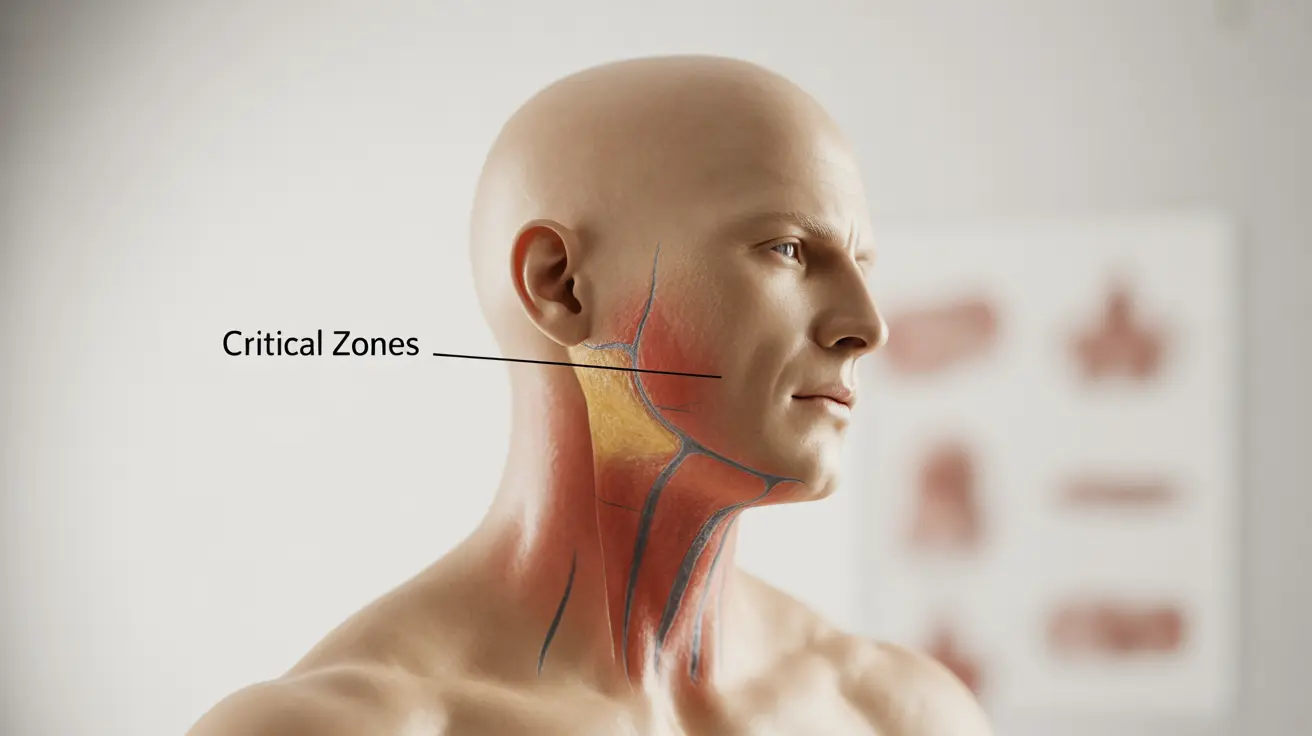Experiencing neck pain at night can be particularly distressing, and while most cases are benign, understanding when such pain might signal a more serious condition like cancer is crucial. While neck pain is commonly caused by muscle strain, poor posture, or injury, certain patterns and accompanying symptoms may warrant further medical attention.
This comprehensive guide will help you understand the relationship between neck pain at night and cancer, including warning signs, diagnostic approaches, and when to seek medical evaluation. Remember that early detection and proper medical assessment are key to addressing any serious underlying conditions.
Distinguishing Features of Cancer-Related Neck Pain
Cancer-related neck pain often presents differently from common neck pain caused by mechanical issues. Some distinctive characteristics include:
- Persistent pain that doesn't improve with rest or conventional treatments
- Pain that significantly worsens at night
- Progressive intensity over time
- Pain accompanied by unexplained weight loss
- Presence of lumps or swelling in the neck area
Types of Cancer Associated with Neck Pain
Several types of cancer can manifest with neck pain as a symptom:
Head and Neck Cancers
These cancers can directly affect the structures in the neck region, potentially causing localized pain and discomfort, especially during nighttime hours.
Lymphoma
Both Hodgkin's and non-Hodgkin's lymphoma can cause enlarged lymph nodes in the neck, potentially leading to pain and discomfort, particularly when lying down.
Metastatic Cancer
Cancer that has spread from other parts of the body to the neck area can cause persistent pain, often accompanied by other systemic symptoms.
Warning Signs and Red Flags
Pay particular attention to these warning signs that may indicate a need for immediate medical evaluation:
- Unexplained lumps or masses in the neck
- Difficulty swallowing or breathing
- Persistent hoarseness
- Unexpected weight loss
- Night sweats
- Severe fatigue
- Recurring infections
Diagnostic Process and Medical Evaluation
When cancer is suspected as a cause of neck pain, healthcare providers typically follow a comprehensive diagnostic approach:
Physical Examination
The doctor will perform a thorough physical examination, checking for lymph node enlargement, masses, and neck mobility limitations.
Imaging Studies
Various imaging techniques may be employed:
- CT scans
- MRI
- PET scans
- X-rays
Laboratory Tests
Blood work and other laboratory tests may be ordered to check for markers of inflammation or specific cancer indicators.
Frequently Asked Questions
What does neck pain at night indicate and when should I worry about cancer?
Neck pain at night that persists despite treatment, is accompanied by systemic symptoms like weight loss or night sweats, or occurs with swelling or lumps should raise concern. While most neck pain isn't cancer-related, these symptoms warrant medical evaluation.
What are the common symptoms that suggest neck pain might be caused by cancer?
Key symptoms include persistent pain unrelated to activity, unexplained weight loss, night sweats, difficulty swallowing, voice changes, and the presence of lumps or swelling in the neck area.
How is cancer-related neck pain diagnosed and what tests are used?
Diagnosis typically involves a physical examination, imaging studies (CT, MRI, PET scans), and laboratory tests. Biopsy may be necessary if suspicious areas are identified.
What types of cancer can cause persistent neck pain, especially at night?
Head and neck cancers, lymphomas, and metastatic cancers from other parts of the body can cause persistent neck pain. These conditions often cause pain that worsens at night.
When should I see a doctor if my neck pain does not improve with treatment or happens with other symptoms like lumps or weight loss?
Seek immediate medical attention if neck pain persists beyond several weeks, is accompanied by unexplained weight loss, lumps, difficulty swallowing, or breathing problems, or significantly impacts your quality of life.




